Popular UI Frameworks To Build Enterprise Applications
Enterprise Applications are crucial for large organizations in today’s fast-paced business world. They help streamline operations, boost productivity, and encourage collaboration. These applications handle complex workflows, manage extensive databases, and offer valuable insights. Enterprise Applications are vital for efficiency, cost reduction, and competitiveness. Building them requires a strong UI framework as a foundation. However, the availability of multiple UI frameworks makes it difficult.
In this blog, we’ll explore popular UI frameworks for Enterprise Applications like Ext JS, Angular, React JS, and Vue JS. Each UI framework has unique strengths, so choosing the right one is essential. We’ll discuss different factors to guide your framework choice. Whether starting a new project or upgrading an existing one, find the ideal UI framework for your success. Let’s begin.

What are Enterprise Applications?
Enterprise applications are vital software tools that large companies use to manage essential tasks. They boost efficiency and productivity across various company departments. Examples include:
1. Customer Relationship Management (CRM) Systems
These apps help companies handle customer data, interactions, and sales. Salesforce is a well-known CRM system.
2. Enterprise Resource Planning (ERP) Software
ERPs combine different business functions like finance, HR, and inventory management. SAP and Oracle are common ERP software.
3. Business Intelligence (BI) Tools
BI apps gather, analyze, and visualize data for informed decisions. Tableau and Power BI are widely used.
4. Content Management Systems (CMS)
CMS software simplifies digital content creation and management for websites and marketing. WordPress and Drupal are popular CMS platforms.
5. Supply Chain Management (SCM) Systems
These apps optimize the movement of goods from suppliers to customers. Oracle SCM Cloud is a notable SCM solution.

What Is the Importance of Enterprise Applications?
Enterprise Applications are crucial for businesses. They make work faster and better. For instance, they help with tasks like managing finances, keeping track of inventory, and handling customer information. These apps reduce mistakes and save time.
Imagine a big store. With an Enterprise App, they can quickly know what’s selling and what’s not. They can also keep customers’ data safe. Plus, these apps can work for many people at once. This means a company can grow without new problems. In short, Enterprise Applications are like super helpers for businesses, making everything smoother and more efficient.

What Are Popular Frameworks for Enterprise Applications?
Here are some popular UI frameworks for enterprise applications. Let’s explore them.
Ext.js By Sencha
Ext.js is a versatile JavaScript framework primarily used for building feature-rich web applications. It offers many pre-built user interface components, powerful data handling capabilities, and strong security features.
Ext JS is known for its flexibility, making it a popular choice for developing robust and customizable enterprise applications.
Extensive Component Library
Ext.js offers a vast library of ready-made UI components, simplifying development and ensuring a consistent look and feel. Whether you need grids, charts, forms, or menus, Ext.js has them. This speeds up coding and ensures a uniform design.
For instance, if you’re making a financial dashboard, Ext.js provides pre-built components like interactive charts for displaying complex financial data efficiently.
Handling Data-Heavy Tasks
Ext.js excels at managing large datasets. It provides potent tools for visualizing data, making it perfect for businesses dealing with extensive information. Ext.js helps you create dynamic, interactive data displays, allowing users to extract insights easily.
Imagine an e-commerce site tracking product sales. Ext.js lets you build interactive charts showing sales trends and top products, aiding decision-making.
Strong Security
Security matters, especially for enterprises. Ext.js offers robust security features, including user authentication, data encryption, and access controls. It complies with industry standards, ensuring your apps meet security requirements.
If you’re developing a healthcare app with sensitive data, Ext.js helps you implement strict access controls. It helps to protect the information.
Flexibility and Customization
Ext.js doesn’t restrict you. It’s highly flexible and customizable, allowing you to adapt it to your needs. You can modify existing components or create new ones to fit your requirements.
Imagine making a project management app for a construction company. Ext.js lets you adjust the interface and workflows to match their processes perfectly.
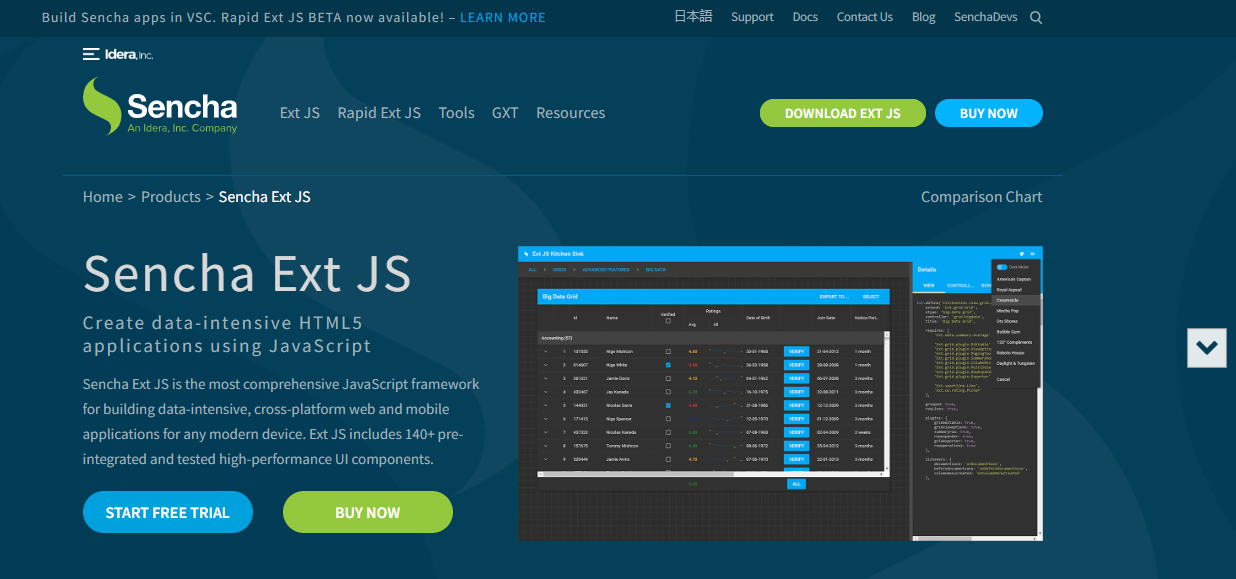
Angular
Angular is a potent UI framework, ideal for enterprise applications. Its modular structure simplifies large-scale app development. Angular excels in data binding, making it easy to update the user interface when data changes.
If you create a real-time dashboard, Angular ensures data updates without manual intervention.
Angular also provides Angular Material. It is a library of UI components streamlining the design of enterprise apps. It helps developers build robust, responsive, and user-friendly applications for business needs.
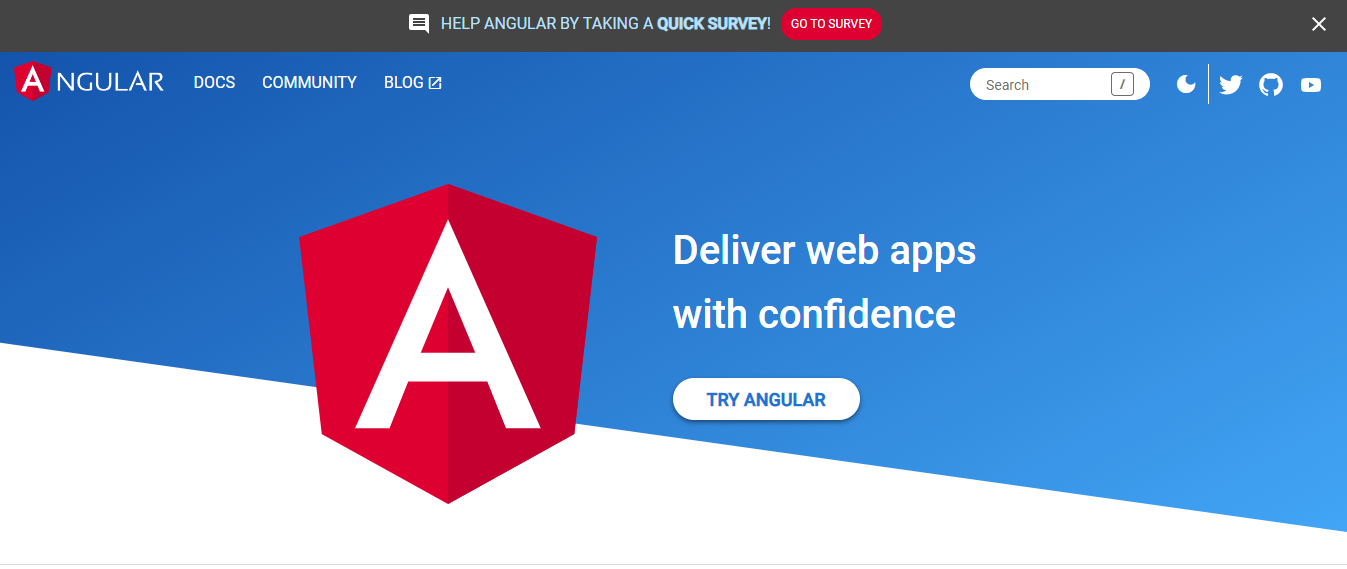
React JS
React.js is a popular UI library known for its component-based approach. It simplifies web app development by breaking it into reusable building blocks. Those building blocks are the components of React.
For example, you can create and use a “button” component throughout your app. You will not have to rewrite the code to create buttons repeatedly. This approach streamlines
Development
Enhances code maintainability
Boosts efficiency.
React’s simplicity and flexibility make it a go-to choice for creating interactive and dynamic user interfaces.
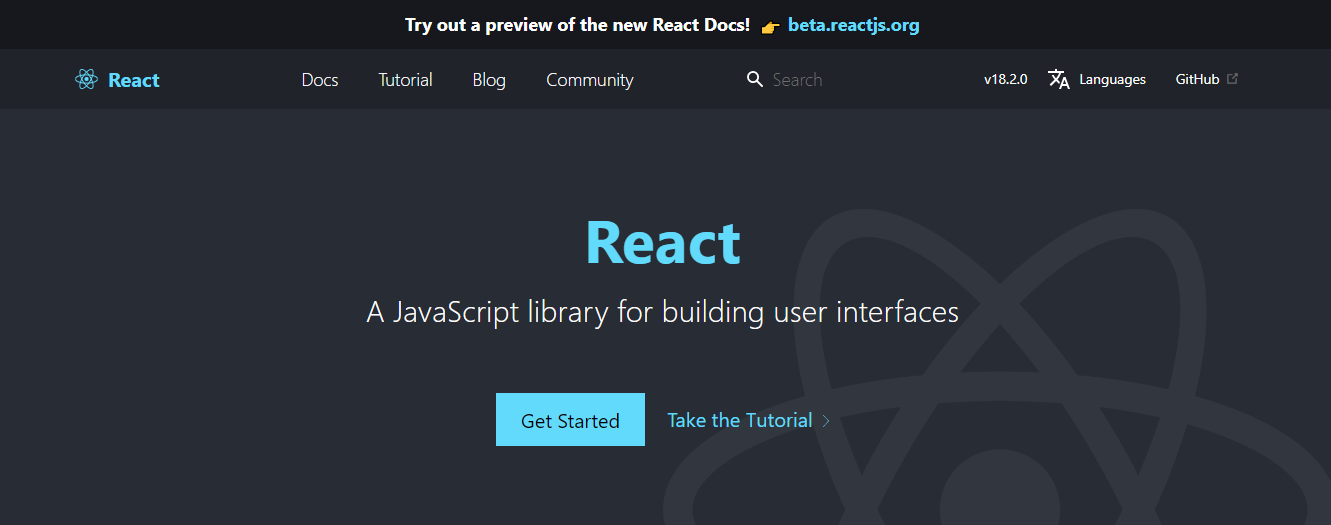
Vue JS
Vue.js is a user-friendly JavaScript framework for enterprise app development. It’s simple and adaptable. For instance, when building an e-commerce site, Vue.js makes adding features like shopping carts and product filters easy, improving the user experience. Its gradual approach lets you start small and grow, making it versatile for businesses aiming to create efficient web apps.
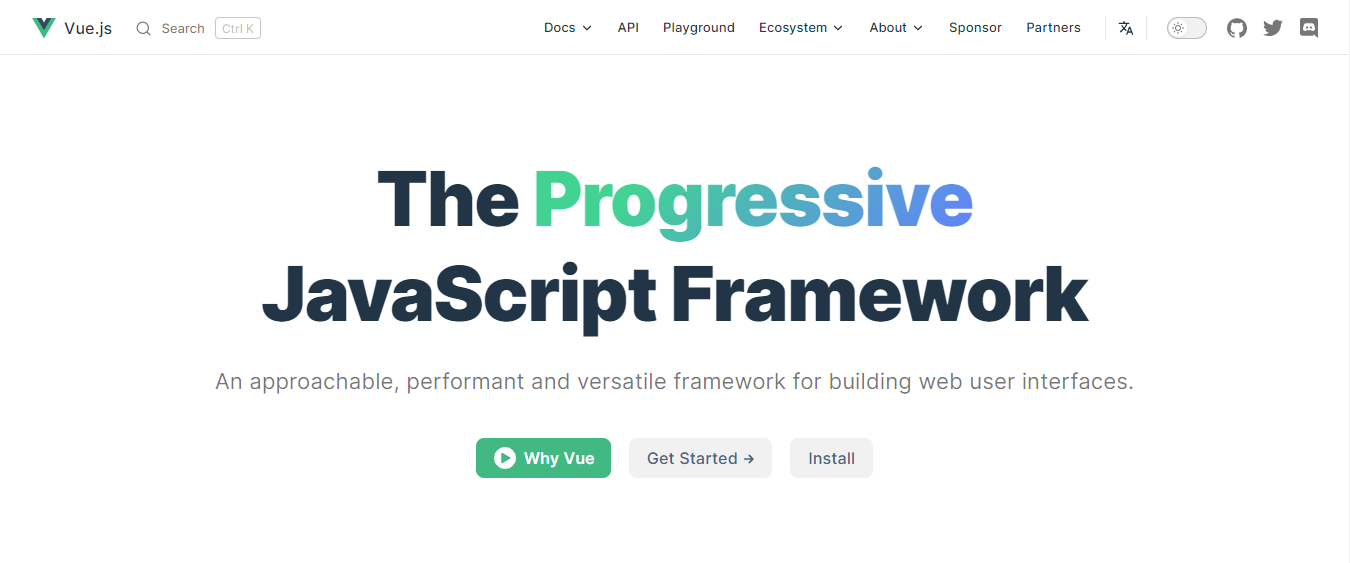
How to Choose the Right UI Framework?
Choosing the right UI framework for your web application comes down to a few essential factors:
Understanding Business Needs: Start by knowing exactly what your business requires. Different industries have unique needs. For example, e-commerce sites need tools for displaying products and handling shopping. On the other end, data analytics apps focus on visualizing data. Make sure the framework you choose matches your business goals.
Assessing Technology: Check if the framework works smoothly with your existing technology. Compatibility issues can slow you down, so choose one that fits seamlessly into your current setup.
Scalability and Performance: Think about your app’s growth. Will it handle more users or data in the future? Your framework should handle this growth without slowing down. Pick one that can adapt as your needs change.
Cloud-Based Options: Consider frameworks that work well with cloud services. These frameworks often provide flexibility and easy scalability. They can make managing your app simpler and more accessible to users worldwide.
Also Read: How to Design UI Faster With the Best UI Components

Conclusion
In conclusion, choosing the right UI framework for enterprise applications is crucial. Ext JS, Angular, React JS, and Vue JS have strengths. Ext JS has many components, Angular has a strong ecosystem, React JS is flexible, and Vue JS is simple and adaptable.
Your choice should align with your business needs, work well with your tech stack, scale as required, and consider cloud options. Considering these factors, you can use these UI frameworks to create effective enterprise applications that propel your business forward in the digital world.
FAQs
What’s the Future of UI Frameworks in Enterprise App Development?
The future of UI frameworks in enterprise app development involves increased emphasis on scalability, performance, and seamless user experiences.
What Are the Key Advantages of ext.js for Enterprises?
Ext.js offers:
- Extensive component libraries
- Simplifying UI development
- Enhancing data visualization
- Ensuring security
- Supporting customization for enterprises.
Why Are UI Frameworks Essential in Enterprise App Development?
UI frameworks streamline development, ensuring efficient, user-friendly interfaces, saving time, and enhancing consistency in enterprise app development.
What UI Framework Should I Use?
You should try Ext JS as the most reliable enterprise solution.
Experience the future of enterprise app development – get started!
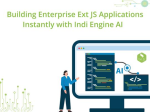
Pavel Perminov, the solo founder and developer of Indi Engine AI, for an insightful session…

Data-rich applications often present users with powerful but complex data grids. While traditional filtering and…

Modern web users expect pixel-perfect interfaces and enterprise-grade performance—delivered yesterday. Yet most teams still spend…










